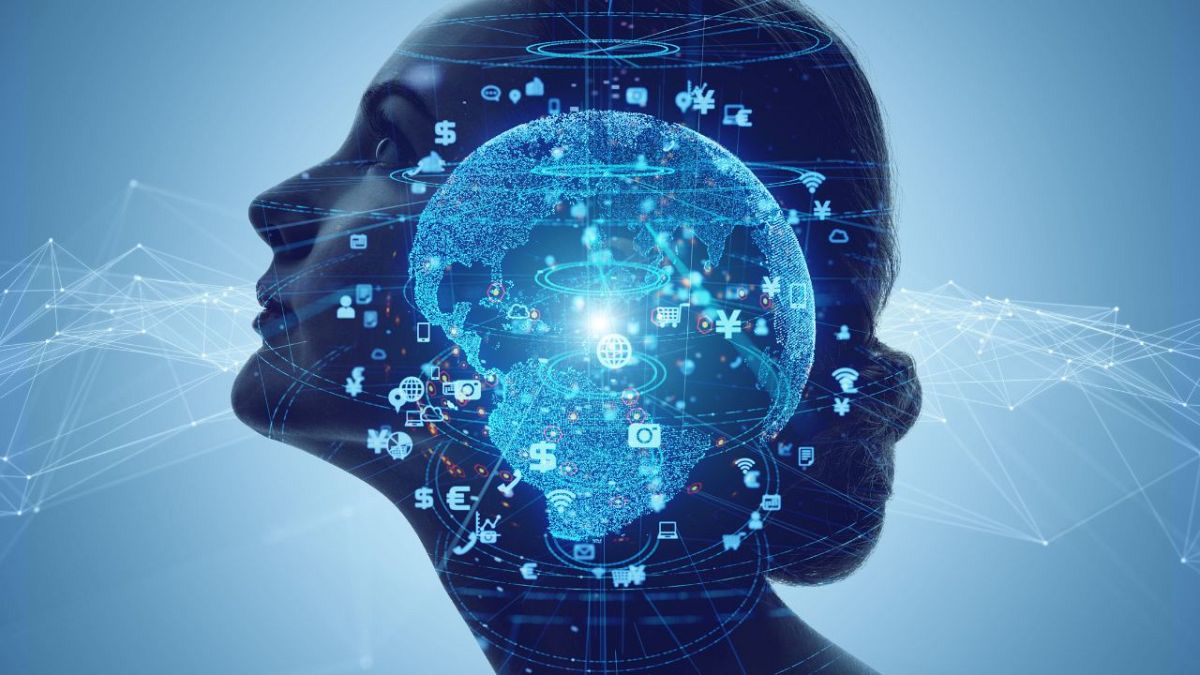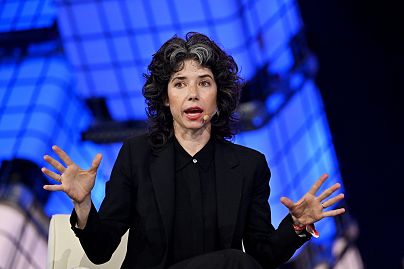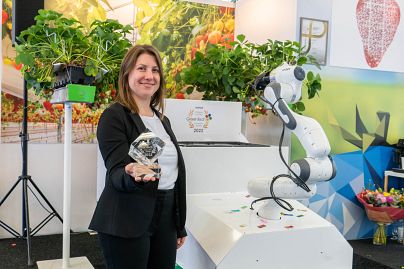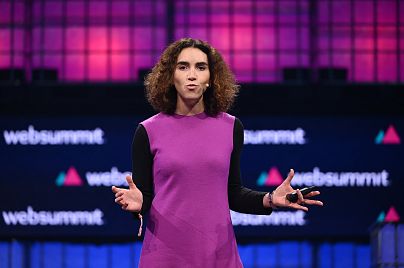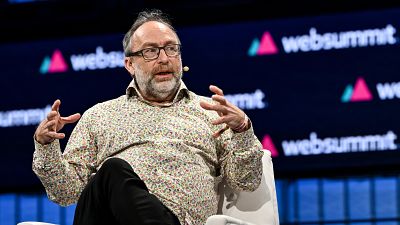Euronews Next spoke to the women working in AI to find out why women need to be in the sector and what needs to change to encourage them.
The new age of artificial intelligence (AI) is set to transform every aspect of our lives but the very people whose job it is to cultivate this innovation make up only a small patch of the fabric of society.
Just 22 per cent of women make up AI professions globally, according to the most recent data from the World Economic Forum (WEF). It comes as no surprise, therefore, that the AI systems used to make decisions like which candidate to interview for a job, for instance, have been found to be biased.
Euronews Next spoke to the women working in AI to find out why there needs to be more women in the sector.
‘A patriarchal and misogynistic culture’
Meredith Whittaker, the president of the messaging app Signal, is one of the early thinkers in artificial intelligence (AI), having led a research group on the technology in 2006 for Google.
“We live in a patriarchal and misogynistic culture where the positions of power in our world are generally occupied by men, and generally white men in most contexts,” she told Euronews Next at Web Summit in Lisbon in November.
She said it therefore comes as no surprise that men are at the apex of the most hyped and increasingly powerful technology, which is dangerous.
She explained that those who benefit from the “proliferation of unsafe technologies, who have never been at the boot end of bias or misogyny or misassumptions, who identify reflexively with those in power and always assume good intent” are making determinations about systems that will generally be deployed by people in power.
This means that it is our employers, police, and governments who will make key decisions with AI, such as who gets unemployment benefits.
“We want people in the room and we want the majority of the people in the room, in my view, to be those who will be most likely to be harmed by those systems,” she said.
“And right now, it's the opposite”.
‘There’s a spot in AI where women are going to be really strong’
But women do not have to have a background in AI to work in the domain or launch their own companies.
Natalia Miranchuk launched an AI app that aims to help mothers with their pregnancy and birth worries and prevent postpartum depression. The Belarusian single mother of two was previously a doula and had no tech experience.
The app uses a chatbot to ask how the mother is doing and can answer her questions, based on information provided by health experts.
It can also gather a semantic analysis of how the mother is talking and can recognise red flags and if she needs urgent attention from her medical provider.
“The more you communicate with the chatbot, the more it communicates with you from a personal side,” Miranchuk told Euronews Next.
The start-up has partnered with Google and is one of the first non-medical health solutions to use the medical language model Med-PaLM 2 for safe communication on pregnancy well-being.
While she admits it is mostly men in her company who lay the foundations for the technology, she states women have a crucial role to play in AI.
“AI is lacking in tone and doesn’t have strong empathy and that is what comes more strongly from the women's side,” Miranchuk said.
“That's why I believe that there’s a spot in AI where women are going to be really strong, and that's something that men can not do, because they don't have this access to very strong feelings and connections. And we have much, much more”.
‘We have an important voice’
Hannah Brown, co-founder of Organifarms, which develops robots for greenhouses and vertical farms for labour-intensive produce to fill the labour gap, agrees that you do not need a background in engineering or tech to work in AI.
She came into the sector via a hackathon to develop solutions for future problems.
“We [women] have an important voice and also I would say that AI is part of the future and it's important that it's our future as well. So we have to be part of shaping it because if it's just men shaping the products, in the end, they will be perfect for them, but maybe not for women as we see in many things,” she told Euronews Next.
She said fewer women are working in the AI sector than men but that more women are studying more technology-related subjects now.
Having role models and seeing the women who are doing the job and leading companies is important, she said.
“It's very important for the next generation of young girls to see, okay, there are women that are leading companies. They are women and thought leaders. And I can be that, too,” she said.
‘Every woman should look at AI’
“I think every woman should look at AI and technology, which is one of the major economic areas of today and in the future,” Joana Rafael, co-founder of the Portuguese start-up Sensei, which makes technology that enables any shop to become an autonomous store, told Euronews Next.
She makes up a quarter of the company’s co-founders, the rest of whom are male, but said that 30 per cent of employees are female.
Rafael believes that positive discrimination is one way to get more women into tech and AI.
She said that companies that fire men to hire women instead may be a step too far but said a good example of positive discrimination working well was being by Web Summit organisers to speak on the main stage instead of her male co-founders.
“I see I think it is important to empower women to be in the sector. So as a role model, maybe for younger girls that are deciding their career path, it’s important to see more women doing it,” she said.
“It's not only men, which of course, are the majority in this technology sector”.
Another way women can be supported in tech leadership roles is for men to play a bigger part in the family, said Rafaei, who has a one-year-old infant.
“The only difference you find between men and women in leadership positions is not only that women have some internal qualities that are different, but I also think is the fact that the women have a more central role, in motherhood in the family,” she said.
“But this is something that needs to change in the culture of our society to make sure that our men, who are also leading companies, are together with women, and have more of a central role in the family”.
